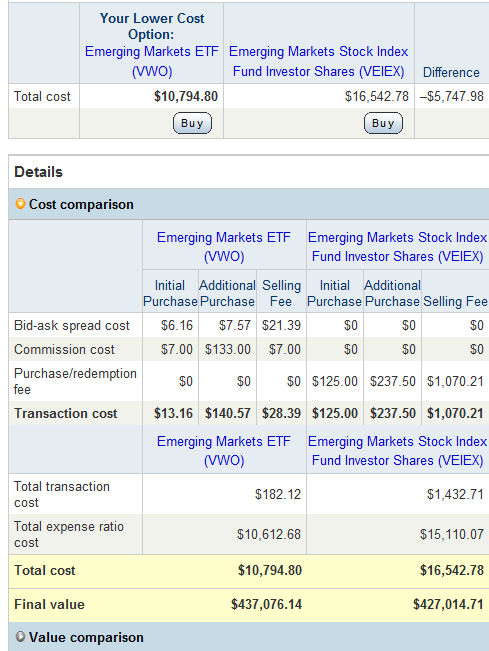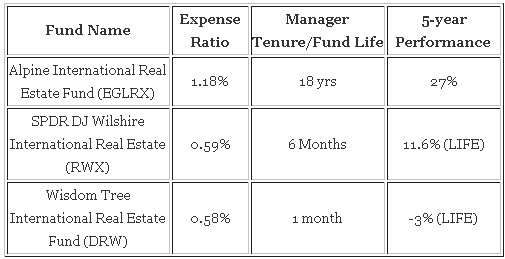Comparing ETFs to Mutual Funds
Post on: 20 Октябрь, 2015 No Comment

Exchange traded funds (ETFs) combine features of mutual funds and stocks. While ETFs share some features with mutual funds, there are some key structural differences that can affect your investment exposure and tax consequences.
Strategy
Index ETFs and Index Mutual Funds
Active Mutual Funds
Index mutual funds and most ETFs are passively managed. Index funds seek to match the fund’s performance to a specific market index before fees and expenses.
The fund’s index benchmark is a standard against which the fund’s performance is measured. One of dozens of indexes like the S&P 500 or the Russell 2000 can be used.
Active mutual funds seek to outperform market indexes. Fund managers use their own judgment and experience to make investment decisions.
Mutual funds must provide a fund objective and a map to an investment style or investment strategy, though the managers of active funds generally have a more latitude in choosing investments than index fund managers do.
Trading
One difference between ETFs and mutual funds is in the way the fund itself is traded.
Mutual funds are bought and sold directly from the mutual fund company atthe current day’s closing price, the NAV (Net Asset Value) calculated for the fund at the end of the day. ETFs are traded throughout the day at the current market price, like a stock, and may cost more or less than NAV.
Mutual fund transactions do not include commissions to a brokerage, while some ETF transactions do.
Fees
In all funds, there are two types of fees to watch: transaction fees and the fees included in the fund’s expense ratio.
In mutual funds, transaction fees may include sales loads (or sales charges) or redemption fees. These are paid directly by investors.
ETF transactions may include brokerage commissions, which are paid directly by investors.
The expense ratio represents the operating costs of a fund divided by the average dollar value under management as of the fund’s fiscal year end. The expense ratio is calculated annually and reported in the fund’s prospectus. The largest and most variable part of the operating costs is usually the fee paid to the fund managers—the management fee.
Operating costs can also include custodial services, recordkeeping, legal expenses, acquired fund fees and expenses (if the fund invests in other funds), accounting and auditing fees, or a marketing fee (called a 12b-1 fee). Operating expenses are taken out of the fund itself and therefore lower the return to the investors.

Since fees vary so much across funds, investors should take time to understand all the fees associated with a fund they might purchase.
Tax Implications
ETFs are structured to shield investors from capital gains taxes. Currently, nearly all ETFs are index funds, so, like index mutual funds, they typically trade less than most actively managed funds and should generate fewer taxable capital gains.
One key difference between ETFs and mutual funds (active and index) is that investors buy and sell ETF shares with other investors on an exchange. As a result, the ETF manager doesn’t have to sell holdings − potentially triggering capital gains − to meet investor redemptions. Mutual fund shareholders redeem shares directly from the fund. The fund manager must sell fund securities to honor redemptions, potentially triggering capital gains that affect all of the shareholders in the fund.
Of course, ETF shareholders can incur tax consequences when they sell shares on the exchange, but that tax consequence is not passed on to other ETF shareholders.
Transparency
Transparency is access to information about which stocks and/or bonds a fund holds—the batch of companies that you access when you buy a fund share.
- ETFs: Generally disclose holdings daily.
- Mutual Funds: Generally disclose holdings quarterly.
Knowing exactly what you are investing in is important information you need to make financial decisions.














